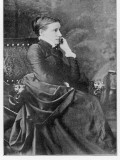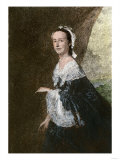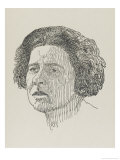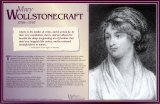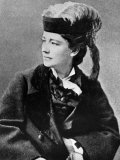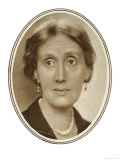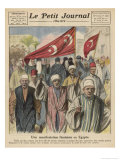|
|
Madame C.J. Walker
b. 12-23-1867; Louisiana
d. 5-25-1919
Madame C. J. Walker, born Sarah Breedlove, was the daughter of ex-slaves. Yet, though she was born into poverty in 1867, she became a leading African American businessperson and the richest black woman of her time. Her childhood in rural Louisiana consisted of long hours in the cotton fields. Her family lived in a one-room shack. She married at age 14, and six years later her busband died of unknown causes. She eventually made her way to St. Louis. There, while experimenting with various chemicals, she discovered a mixture that supposedly stimulated hair growth. She began going door to door to well her new product. She also popularized the use of the modern hot comb, which allowed black women to straighten and style their thick hair. By combining her “Wonderful Hair Grower” and hot comb, she soon made a name for herself. She married a newspaperman named C. J. Walker. Although the marriage did not last, she chose to keep his name and was known from then on as Madam C.J. Walker. In the early 1900s, few avenues of opportunity were open to women. One that was, however, was women's cosmetics, and Madam Walker went into it with gusto. Her company grew rapidly. Her accomplishment are all the more remarkable because, as a black woman, she had to triumph over both racism and sexism.
• more African American women posters
• Harlem Renaissance Map poster
• Madame C.J. Walker-Amazon.com
|
|
|
|
Maggie Lena Walker
née Mitchell
b. 7-15-1867; Richmond, VA
d. 12-15-1934
Successful businesswoman, financier, and civic leader Maggie Lena Walker is the first American woman to establish and manage a bank. The bank, which evolved out of the Right Worthy Grand Council of the Independent Order of St. Luke, operates today as the Consolidated Bank and Trust, the oldest black-owned and managed bank in America.
Walker was committed to improving the quality of life for her people both economically and socially through civic organizations, such as the NAACP and the National Negro Business League.
Her residence in Richmond, Virginia, was established as a national historic site by congressional legislation in 1978.
Maggie Lena Walker quotes ~
• “Let us put our money together; let us use our money; Let us put our money out at usury among ourselves, and reap the benefit ourselves.”
• “Small plans have no magic to stir people's blood.”
|
|
|
|
Elizabeth Stuart Phelps Ward
b. 8-31-1844; Andover, MA
d. 1-28-1911; Newton Center
Author Elizabeth Stuart Phelps Ward was an advocate for social reform, temperance, and the emancipation of women including urging them to burn their corsets.
Elizabeth Stuart Phelps Ward quote ~
• “Sweetest the strain when in the song the singer has been lost.”
• “A great idea is usually original to more than one discoverer. Great ideas come when the
world needs them. Great ideas surround the world's ignorance and press for admission.”
• “It is not the straining for great things that is most effective; it is the doing the little things, the common duties, a little better and better.”
• “Happiness must be cultivated. It is like character. It is not a thing to be safely let alone for a moment, or it will run to weeds.”
• “Who originated that most exquisite of inquisitions, the condolence system?”
• “What an immense power over the life is the power of possessing distinct aims. The voice, the dress, the look, the very motion of a person, define and alter when he or she begins to live for a reason.”
|
|
|
|
Mercy Otis Warren
b. 9-14-1728; Barnstable, MA
d. 10-19-1814; Plymouth
Mercy Otis Warren, the sister of patriot lawyer James Otis (1725-1783), and wife of James Warren, is known as the “Conscience of the American Revolution.”
Mercy Warren was a close friend of Abigail Adams and hosted political meetings in her home. In 1772 her play, The Adulateur, was published. After the war, in 1790, Mrs. Warren published a volume of poetry in her name and in 1805, she published History of the American Revolution.
• American Revolutionary War Era posters
|
|
|
|
Ida Bell Wells-Barnett
b. 7-16-1862; Holly Springs, MS
d. 3-25-1931; Chicago
Ida Wells-Barnett, active in the women's rights and the women's suffrage movement, is best remembered today for her journalistic campaign against racial lynching. Threats against her life and the destruction of her Memphis, TN newspaper office only produced stronger and louder editorials and investigative journalism on the subject.
FYI - Ida Wells was arrested for refusing to give up her train seat to a white man 71 years before Rosa Parks.
Ida B. Wells quotes ~
• “I will not begin at this late day by doing what my soul abhors; sugaring men, weak deceitful creatures, with flattery to retain them as escorts or to gratify a revenge.”
• more Black History posters
• Women Who Dared II
|
|
|
|
Rebecca West
née Cicely Isabel Fairfield
b. 12-21-1892; London, England
d. 3-15-1983; London
Author, journalist, literary critic, travel writer, and committed feminist Rebecca West was one of the foremost public intellectuals of the twentieth century. West had a ten year affair with H. G. Wells.
• Black Lamb and Grey Falcon: A Journey Through Yugoslavia; Rebecca West
Rebecca West quote ~
• “There is a point, and it is reached more easily than is supposed, where interference with freedom of the arts and literature becomes an attack on the life of society.”
|
|
|
|
Emma Willard
b. 2-23-1787; Berlin, CT
d. 4-15-1870
Emma Willard was a writer and women's rights advocate founding the first women's school of higher education in 1821, the Troy Female Seminary, later renamed the Emma Willard School (1895). Among notable students over the years were Elizabeth Cady Stanton, Justine Johnstone, Jane Fonda and Kirsten Gillibrand.
Emma Willard quote ~
• “If one seminary should be well organized, its advantages would be found so great that others would soon be instituted; and that sufficient patronage can be found to put one in operation may be presumed from its reasonableness and from the public opinion with regard to the present mode of female education.”
|
|
|
|
Frances Elizabeth Willard
b. 9-28-1839; Churchville, NY
d. 2-17-1898
Educator Frances E. Willard was instrumental in the passage of the Eighteenth (Prohibition) and Nineteenth (Women Suffrage) Amendments to the United States Constitution. Her argument was that female suffrage was based on “Home Protection,” which she described as “the movement...the object of which is to secure for all women above the age of twenty-one years the ballot as one means for the protection of their homes from the devastation caused by the legalized traffic in strong drink.”
Frances E. Willard quote ~
• “This seems to be the law of progress in everything we do; it moves along a spiral rather than a perpendicular; we seem to be actually going out of the way, and yet it turns out that we were really moving upward all the time.”
|
|
|
|
|
|
|
Victoria Claflin Woodhull
b. 9-23-1838; Homer, Licking Co., Ohio
d. 6-9-1927; Bredom, England
Victoria Woodhull was publicized in Gilded Age newspapers as a notorious and controversial symbol for women's rights, free love, and labor reforms. Victoria and her sister, Tennessee Celeste Claflin, published a newpaper advocating women's suffrage with money earned in their successful Wall Street brokerage firm (whose financial backing came from Cornelius Vanderbilt). Victoria ran for the United States Presidency in 1872, Tennessee ran for Congress in the State of New York.
Victoria Woodhull quotes ~
• “I am a free lover. I have an inalienable, constitutional and natural right to love whom I may, to love as long or short a period as I can; to change that love every day if I please.”
• “I now announce myself as candidate for the Presidency. I anticipate criticism; but however unfavorable I trust that my sincerity will not be called into question.”
• “Rude contact with facts chased my visions and dreams quickly away, and in their stead I beheld the horrors, the corruption, the evils and hypocrisy of society, and as I stood among them, a young wife, a great wail of agony went out from my soul.”
• Notorious Victoria: The Life of Victoria Woodhull, Uncensored
|
|
|
|
|
|
|
Frances “Fanny” Wright
b. 9-6-1795; Dundee, Scotland
d. 12-13-1852; Cincinnati, OH
Frances “Fanny” Wright was a lecturer, writer, freethinker, feminist, abolitionist, and social reformer.
As an experiment in utopian ideals she founded the Nashoba Commune (near Memphis, TN) in 1825, the same year she became a US citizen. The commune was a test project to educated and emanicpate slaves were no slaveholders would lose money for freeing slaves. Nashoba failed because of poor crops, the scandal of having whites and blacks living together, and the absence of Wright due to illness.
Wright also was part owner of the New Harmony Gazette in the utopian community of New Harmony, Indiana, the work of Robert Owen, one of the founders of socialism and the cooperative movement.
Fanny Wright quotes ~
• “I am not going to question your opinions. I am not going to meddle with your belief. I am not going to dictate to you mine. All that I say is, examine, inquire. Look into the nature of things. Search out the grounds of your opinions, the for and against. Know why you believe, understand what you believe, and possess a reason for the faith that is in you.”
• “There is but one honest limit to the rights of a sentient being; it is where they touch the rights of another sentient being. Do we exert our own liberties without injury to others - we exert them justly; do we exert them at the expense of others - unjustly. And, in thus doing, we step from the sure platform of liberty upon the uncertain threshold of tyranny.”
• “All men are born free and equal! That is: our moral feelings acknowledge it to be just and proper, that we respect those liberties in others, which we lay claim to for ourselves; and that we permit the free agency of every individual, to any extent which violates not the free agency of his fellow creatures.”
• “I am neither Jew nor Gentile, Mohammedan nor Theist; I am but a member of the human family, and would accept of truth by whomsoever offered -- that truth which we can all find, if we will but seek in things, not in words; in nature, not in human imagination; in our own hearts, not in temples made with hands.”
• Fanny Wright: Rebel in America
|
|
|
|
The Women of Cairo Demonstrate Their Rights - Une manifestation féministe en Egypte - front cover of Le Petit Journal.
|
|
|
previous page | top
activist list | a | b | c | d | e | f | g | h | i-j | k | l | m | n-o | p | r | s | t-u-v | W-Z >
Pioneers of Women’s Rights Movement Posters
|
|
I have searched the web for visual, text, and manipulative curriculum support materials - teaching posters, art prints, maps, charts, calendars, books and educational toys featuring famous people, places and events - to help teachers optimize their valuable time and budget.
Browsing the subject areas at NetPosterWorks.com is a learning experience where educators can plan context rich environments while comparing prices, special discounts, framing options and shipping from educational resources.
Thank you for starting your search for inspirational, motivational, and educational posters and learning materials at NetPosterWorks.com. If you need help please contact us.
|
|
|
|








